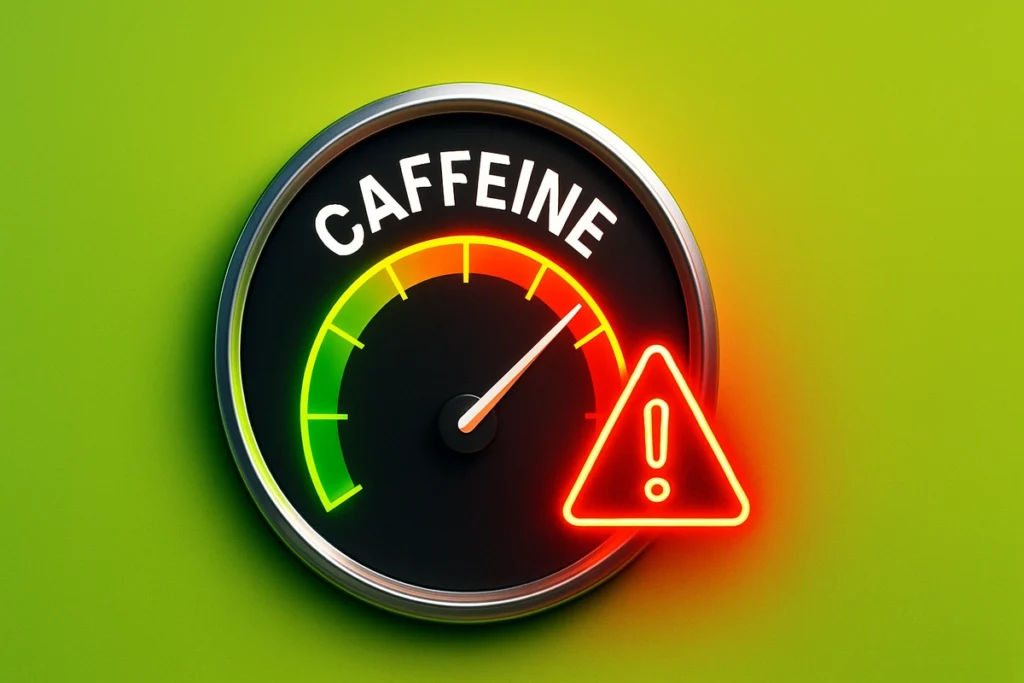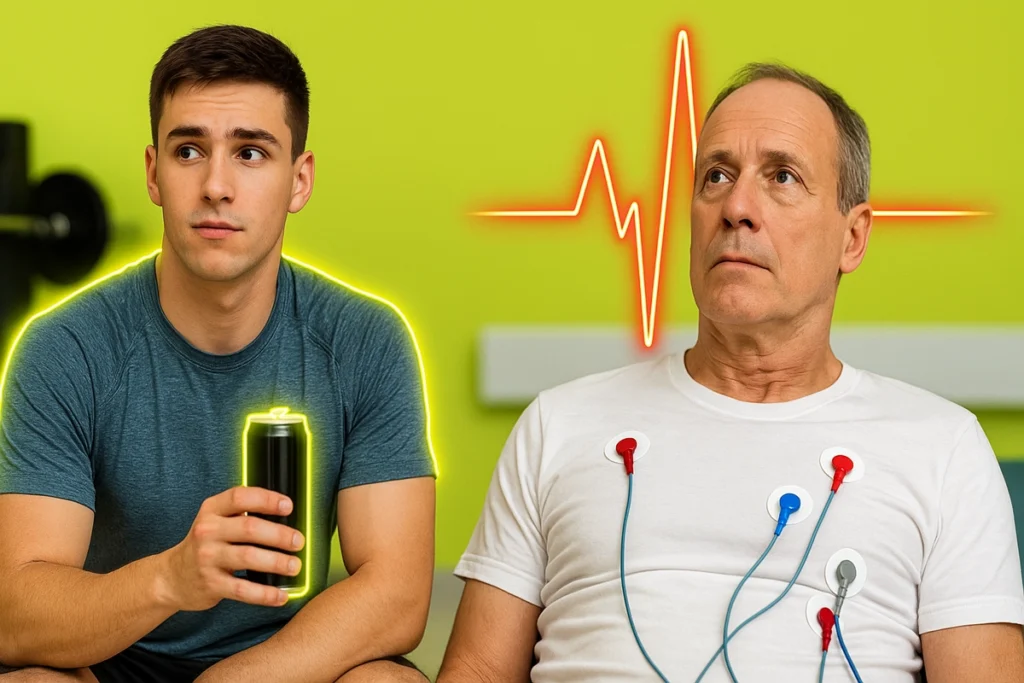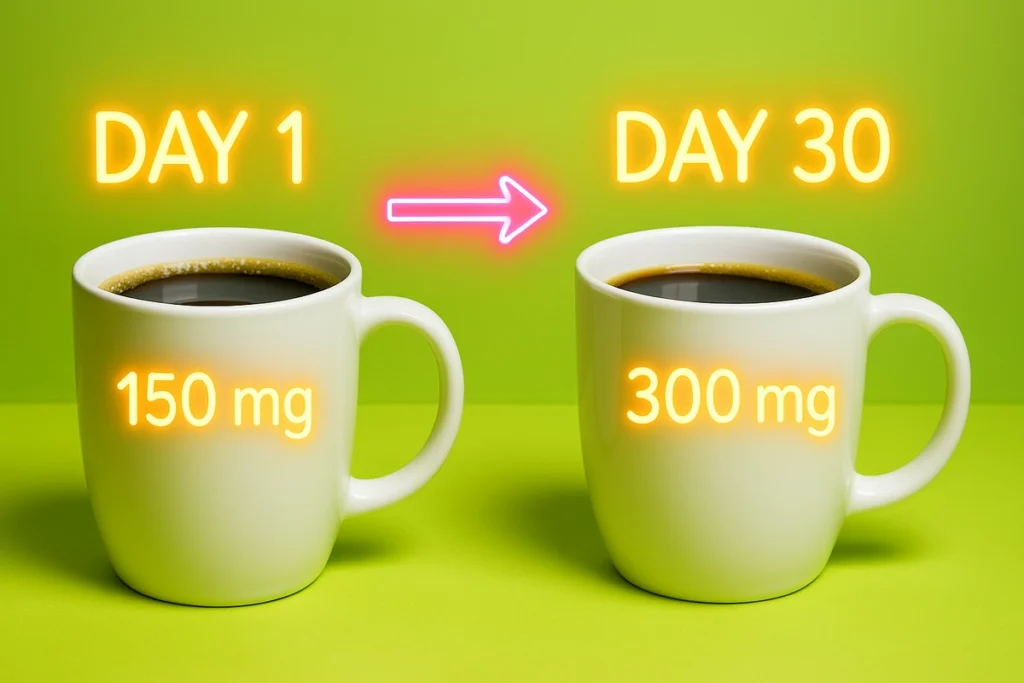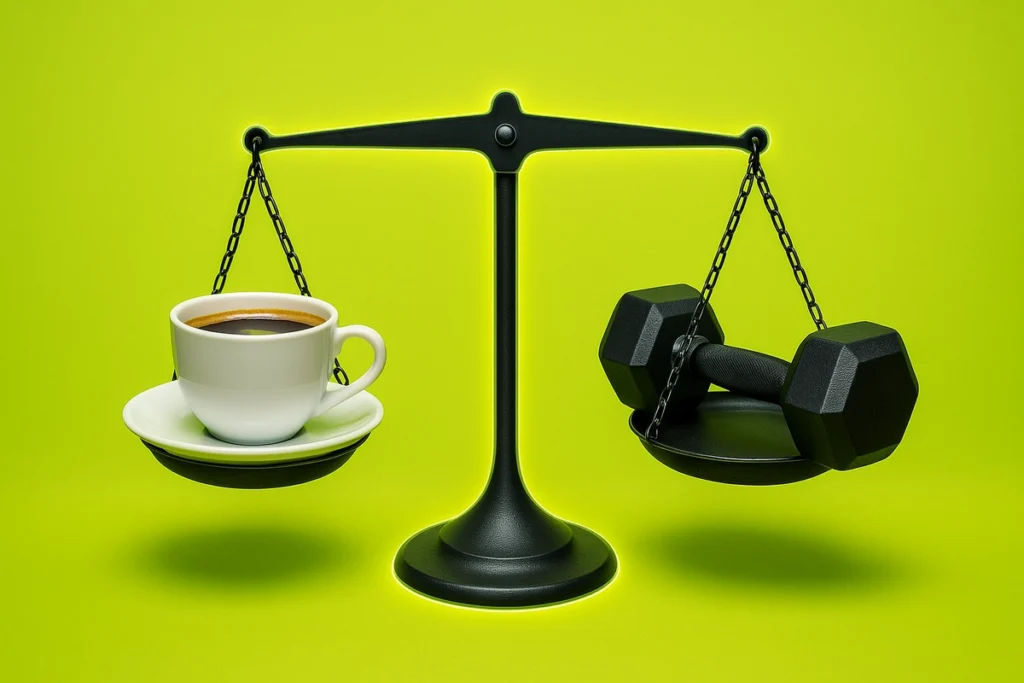Caffeine is one of the most popular performance enhancers in the fitness world—but what happens when you take too much?
Sure, it can boost focus, energy, and endurance. But high doses can quickly turn from helpful to harmful, leaving you anxious, sleepless, and wired in the worst way.
In this article, I’ll break down the real side effects of caffeine overload based on science, client experiences, and my own journey as a fitness coach.
If you’re using coffee, pre-workouts, or energy drinks to power through your day, this is your wake-up call.
Table of contents
Quick Answer: Is Too Much Caffeine Dangerous?

Absolutely. High doses of caffeine can seriously mess with your body and mind.
While moderate amounts (up to 400 mg/day, according to the FDA) are generally safe for healthy adults, going beyond that—especially often—can lead to real problems.
From my own experience, I once doubled up on a strong pre-workout during a cutting phase and chased it with an espresso. My heart was racing, I felt wired for hours, and I couldn’t sleep until 4 a.m. Trust me, it wasn’t a productive night.
For timing your caffeine properly, check out best time to take caffeine for workout.
Common Side Effects of High Caffeine Intake

When you cross the line with caffeine, your body sends warnings. Here are the most common ones I’ve seen in clients and personally felt:
- Jitteriness and anxiety – You feel amped up for no reason, even outside the gym.
- Insomnia – Especially if consumed in the evening.
- Elevated heart rate and blood pressure – Your resting heart rate may stay high, which is a red flag.
- Digestive issues – Caffeine can irritate the gut and trigger acid reflux.
I had a client, Miguel from Spain, who used to rely on 4–5 energy drinks a day to cut fat. He started struggling with constant restlessness and couldn’t sleep properly. Once we cleaned up his intake, everything changed.
For caffeine use before cardio, see caffeine before fasted cardio.
Severe Symptoms of Caffeine Overdose

Going too far can be dangerous. Signs of actual caffeine overdose include:
- Heart palpitations or irregular heartbeat
- Panic attacks
- Nausea and vomiting
- Muscle twitching or tremors
These aren’t just “too much coffee” symptoms—they can lead to emergency situations. I’ve seen people end up in the ER over what they thought was just a strong pre-workout.
For safer alternatives, you can also read about natural caffeine sources pre-workout.
How Much Is Too Much?

Caffeine content varies widely:
- A cup of coffee: 80–100 mg
- Energy drinks: 150–300 mg
- Pre-workouts: 200–400 mg per scoop
Some brands hide the actual caffeine dose behind “proprietary blends.” I always suggest checking the label and tracking your intake.
Jacob from Canada used 400 mg pre-workouts daily. Within weeks, he felt flat without them. That’s dependency, not performance.
Explore how caffeine compares to supplements in caffeine vs pre-workout.
Who’s at Higher Risk?

Certain groups should be more cautious:
- Beginners with no caffeine tolerance
- People with anxiety or heart issues
- Athletes stacking stimulants from multiple sources
Lina, a young client from Germany, once tried a caffeine pill without any prior use. She ended up in the ER with heart palpitations. A hard lesson—but she learned.
You can learn more in caffeine pills vs coffee for gym performance.
Caffeine Tolerance and Dependency

The more you use, the less it works.
Caffeine tolerance builds fast. Before you know it, you need double the dose just to feel alert. And when you stop suddenly, withdrawal hits—headaches, brain fog, and low motivation.
I’ve been through it. The first few days are rough, but by day five, my energy came back naturally and my sleep improved.
For help with this, read caffeine tolerance reset.
Safe Use Tips for Fitness Enthusiasts

Here’s what I recommend as a fitness coach and someone who’s made all the mistakes:
- Stick to 150–200 mg pre-workout if you’re healthy
- Avoid caffeine after 5 p.m.
- Cycle off caffeine every couple of months to reset your tolerance
- Don’t stack coffee + pre-workout + energy drinks
Moderate caffeine can definitely help with energy and training focus. But like any tool, it only works if used right.
For fat-burning and focus-specific advice, check caffeine dosage for fat burning and focus, or if recovery is your concern, see caffeine and muscle recovery.
Conclusion: Respect the Dose, Reap the Benefits

Caffeine is powerful—and it can be your ally if you use it smartly.
Stay aware of your intake, listen to your body, and don’t chase energy with stimulants alone.
From a coach who’s felt the highs and the crashes: use caffeine to fuel your workouts, not your entire day. Train hard, rest well, and don’t let the buzz take over.



Leave a Reply